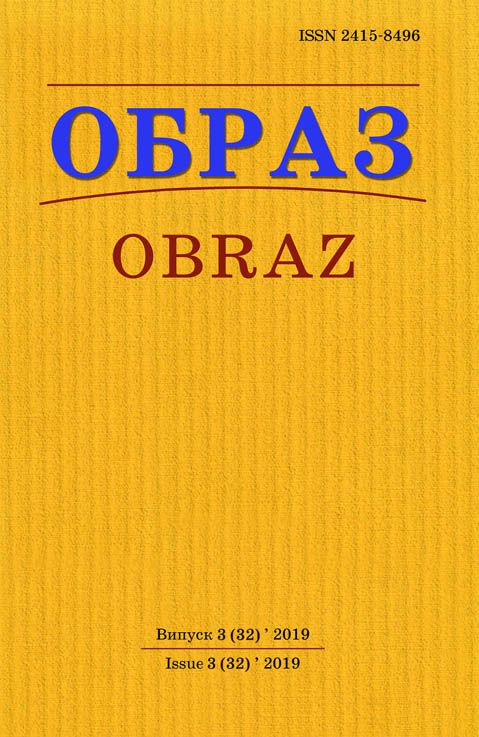Анотація
Мета статті – схарактеризувати жанрові трансформації у медіасередовищі політичної комунікації в Україні. Актуальність дослідження пов’язана зі змінами у форматі передвиборчих кампаній в Україні, які спричинили трансформацію жанрів та моделей медіакомунікації. Розглядаються трансформація таких жанрів політичної комунікації, як інтерв’ю, блог, телезвернення, дебати, прес-конференція. Встановлено, що її чинниками є перехід політичного дискурсу у шоу-формат, наявність контрастного за іміджем опонента, глобальні політичні та цифрові тенденції.
Посилання
1. Pocheptsov G. G. (1999). Kommunikativnye tehnologii ХХ veka. [Communicative technologies of the ХХ century]. Moscow: Refl book; Kiev: Wakler.
2. Volodenkov S. V. (2011). Novye formy politicheskoj kommunikacii v sovremennom politicheskom upravlenii: ugrozy i vyzovy. [New forms of political communication in modern political governance: threats and challenges]. Gosudarstvennoe upravlenie. Jelektronnyj vestnik – Public administration. Electronic bulletin. 27. 1-9.
3. Butyrina M. V. (2018). Osnovni trendy ta konstrukty postzhurnalistyky [Main trends and constructs of post-blogging]. Visnyk Harkivs’kogo nacional’nogo universytetu im. V. N. Karazina. Serija «Social’ni komunikacii» – Newsletter of Kharkiv National University V. N. Karazina. Seriya «Social services”. 12. 9-13.
4. Chudinov A. P. (2012). Diskursivnye harakteristiki politicheskoj kommunikacii [Discursive characteristics of political communication]. Politicheskaja lingvistika – Political Linguistics, 2 (40), 53–59.
5. Lazarєva L. M. (2010). Blog jak nadsuchasnyj zasib masovoi’ komunikacii’ Aktual’ni problemy istorii’, teorii’ ta praktyky hudozhn’oi’ kul’tury: zb. nauk. prac’. [Actual problems of history, theory and practice of art culture: Scientific collected works]. Kyiv: Milenium, 2010, 151-159.
6. Ivashchuk A. (2013). Transformacija zhanriv i problema i’hn’oi’ identyfikacii’ v teorii’ ta zhurnalists’kij praktyci [Transformation of the genre and problem of identification and identification in theory and journalistic practice]. Gumanitarna osvita v tehnichnyh vyshhyh navchal’nyh zakladah –Humanitarianism in technical and other primary mortgages. 27, 375–391.
7. Kondratenko N. V. (2018). Politychne interv’ju jak verbal’na reprezentacija imidzhu ukrai’ns’kogo polityka [Political interview is verbal representation of the Ukrainian political policy]. Naukovyj visnyk Mizhnarodnogo gumanitarnogo universytetu. Serija filologija – Science newsletter of the International Humanitarian University. Serіya philology, 32 (3), 53-56.
8. Sokolov G. I. (1982). Olimpija [Olympia]. Moskow, Isskustvo.
9. Lytkina L. V. (2017). Politicheskaja kommunikacija v pole medijnogo prostranstva (istoricheskij aspekt) [Political communication in the field of media space (historical aspect)]. Upravlencheskoe konsul’tirovanie – Management consulting, 5, 150–161. DOI 10.22394 / 1726- 1139-2017-5-150-161.
10. Rusakova O. F. (2009). Shou-politika: osobennosti diskursa [Show-politics: features of the discourse]. Socium i vlast’ – Socium and Power, 4, 36–39.
11. Soloviev A. I., Malinova O. Yu., Gaman-Golutvina O. V., Ilyin M. V., Pshizova S. N. (2004). Sovremennye tendencii razvitija simvolicheskogo prostranstva politiki i koncept ideologii [Current trends in the development of the symbolic space of politics and the concept of ideology]. Polis. Politicheskie issledovanija - The policy. Political research, 4, 28-51. DOI: 10.17976 / jpps / 2004.04.03
12. Edward T. Hall. The Silent Language. Garden City, N.Y.: Doubleday, 1959.

Ця робота ліцензується відповідно до ліцензії Creative Commons Attribution 4.0 International License.

